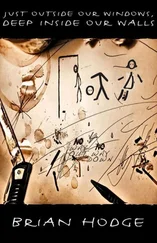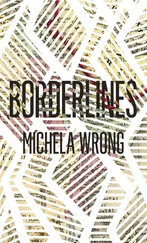The cabinet Kibaki unveiled on the lawn of State House – ‘Ladies and gentlemen, we are in business’ – rewarded allies who had made victory possible. A member of the Kikuyu, 1 Kenya's largest and most economically successful tribe, Kibaki knew his nation's two-score smaller tribes needed reassurance if they were to stay on board. Announcing the line-up, he promised foreign donors, itching to resume lending frozen during the Moi years of mutual ill-will, that he would swiftly implement two anti-corruption bills dear to their hearts. There was less detail on the new constitution NARC had undertaken to introduce within a hundred days, expected to trim the president's sweeping executive powers and force him to share decision-making with a prime minister. But few doubted this was on its way. A man with a reputation for soft living and hard drinking, Kibaki knew his younger coalition partners had in part rallied behind him because they viewed him as too indolent to want to do much, too old to attempt more than one term. They regarded him as virtually a figurehead, and there was no sign that he intended to renege on the deal.
Things finally seemed to be going right for Kenya, and the news spread beyond the country's borders like a warm glow. ‘The victory of the people of Kenya is a victory for all the people of Africa,’ South Africa's first lady, Zanele Mbeki, pronounced at Kibaki's swearing-in, and she was right. For Kenya is one of a handful of African nations which have always possessed a significance out of keeping with their size and population, whose twists and turns are monitored by outsiders for clues as to which direction the continent itself is taking. Somehow, what happens here matters more to the world outside than what happens in many larger, richer, more populous African countries.
This pre-eminence can in part be traced to Britain's colonial role and the astonishingly resilient memory of ‘a sunny land for shady people’, where English aristocrats swapped wives and downed gin-and-tonics while snorting quantities of recreational drugs. Long before Barack Obama's ancestry came to intrigue the Western public, a pith-helmeted fantasy woven from Ernest Hemingway's tales and Martha Gellhorn's writings, the escapades of the Delamere family, stories of the man-eating lions of Tsavo, Karen Blixen's Out of Africa and the White Mischief cliché – all references irrelevant to ordinary Kenyans but stubbornly sustained by the tourism industry – guaranteed the country a level of brand recognition other African states could only dream about.
But there are less romantic reasons for Kenya's disproportionately high profile. The most advanced economy in the region – thanks in part to the network of roads, cities, railroads and ports left by the British – Kenya has held linchpin status ever since independence by mere dint of what it is not. It has never been Uganda, where Idi Amin and Milton Obote demonstrated how brutal post-colonial rule could turn; or Rwanda, mourning a genocide that left nearly a million dead; or Sudan, venue for one of the continent's longest civil wars. In place of Ethiopia's feeding stations and Somalia's feuding warlords, it offered safari parks and five-star coastal hotels. Kenya's dysfunctional neighbours have always made it look good in comparison.
It had made the right choice in the Cold War lottery, allying itself with the winning, capitalist side. Kenya was the obvious place to train your soldiers, in the case of the British Army; to moor your warships, in the case of the Pentagon; to base your agencies, in the case of the United Nations; or to set up your Africa bureaux, in the case of Western television and radio stations. The road to the centre of Nairobi from Jomo Kenyatta airport – which services more airlines in an afternoon than many African airports manage in a week – said it all, with its industrial storage depots and hoardings advertising mobile phones and internet servers, beer and mattresses. ‘Nai-robbery’, as expatriates cynically dubbed it, might be potholed and crime-ridden, but it was the capital of a highly cosmopolitan, comparatively stable nation run, through the decades, by a series of administrations Westerners instinctively felt they could do business with. Like its former colonial master, Kenya had always punched above its weight, offering outsiders – wincingly sensitive to the continent's darker manifestations – a version of Africa they could stomach.
So when Kenya, in the latter part of the Moi era, appeared to veer off course, the world pricked up its ears. Moi, admittedly, had been nothing like as crudely predatory as Zaire's Mobutu Sese Seko, Togo's Gnassingbe Eyadema or Cameroon's Paul Biya – contemporaries all. But as diplomats repeatedly told government officials smarting at their criticisms: ‘We hold Kenya to higher standards than other countries.’ And when measured against what it could have become, rather than against neighbouring basket cases, Kenya, by the turn of the century, was beginning to look desperately unimpressive, the model pupil turning sullen delinquent. The end of the Cold War, which had transformed the prospects of so many African states devastated by the superpowers' proxy wars, had delivered no obvious dividend here. Hopeful talk of an emerging group of ‘Renaissance’ leaders who would find ‘African solutions to African problems’ did not include Kenya, weltering in a political, economic and moral miasma. Once ranked a middle-income country, Kenya lagged towards the bottom of the international league tables, its early potential unfulfilled. At independence in 1963, average per capita income had been level with that of Malaysia; now Malaysia's was ten times as high.
Moi liked to be known as the Professor of Politics, and the man dismissed by his enemies as a ‘passing cloud’ when he succeeded Kenyatta in 1978 had proved a remarkable survivor, riding out a shift to multi-party politics that many had assumed would unseat him. Yet in the process he had pauperised many of his thirty million citizens, of whom 55 per cent now lived on less than a dollar a day. In Nairobi's sprawling slums, the largest and most sordid in Africa, Western-funded non-governmental organisations (NGOs) provided basic services, not the state, of which nothing was expected. When Kenya marked forty years of independence in 2003, newspaper cartoonists could not resist highlighting the cruel trick history had played on the country. They captured its itinerary in a series of chronological snapshots: in the first, an ordinary Kenyan in a neat suit and shined shoes stands sulking under white colonial rule. In the second, a free man under Kenyatta leaps for joy, but his suit is beginning to look distinctly tatty. By the Moi era, the emaciated mwananchi is crawling, not walking. His suit is in tatters, he has lost his shoes, and, eyes crazed, he is begging for alms. The statistics made the same point, in drier fashion: living standards in the independent, sovereign state of Kenya were actually lower than when the hated British ruled the roost.
Kenya might well boast, by African standards, a large middle class, but the gap between that group and those eking out a living in its teeming slums was the stuff of revolution. ‘Kenya is now one of the most disappointing performers in sub-Saharan Africa,’ ran an editorial in my own newspaper, the Financial Times , the day after the 2002 election. ‘There is barely an economic or social indicator that does not testify to the country's decline.’ 2 Given that Kenya had never experienced a civil war, never been invaded, and had started out with so much in its favour, the fault must lie elsewhere. And everyone agreed where: in a system of corruption and patronage so ingrained, so greedy it was gradually throttling the life from the country.
Whether expressed in the petty bribes the average Kenyan had to pay each week to fat-bellied policemen and local councillors, the jobs for the boys doled out by civil servants and politicians on strictly tribal lines, or the massive scams perpetrated by the country's ruling elite, sleaze had become endemic. ‘Eating’, as Kenyans dubbed the gorging on state resources by the well-connected, had crippled the nation. In the corruption indices drawn up by the anti-graft organisation Transparency International, Kenya routinely trailed near the bottom in the 1990s, viewed as only slightly less sleazy than Nigeria or Pakistan. From the increasingly strained relations between the country's tribes to the rising anger of its prospectless youth, Kenya exemplified many of Africa's most intractable problems.
Читать дальше












